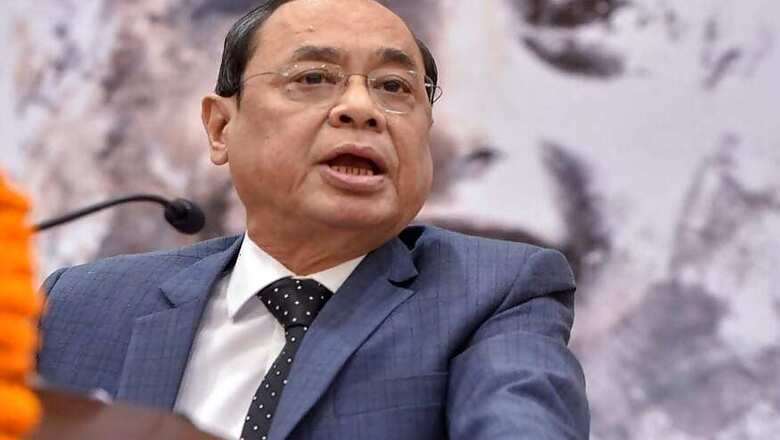
views
New Delhi: Supreme Court judge Justice Ranjan Gogoi on Thursday said independent journalists and noisy judges are needed to be democracy’s first line of defence and warned that if the judiciary wishes to preserve its independence, it should remain uncontaminated from external interference.
Justice Gogoi, who is the next in line to the Chief Justice of India based on seniority, said that a “constitutional moment" for the judiciary was long overdue. The current legal process, he said was defying the very idea of inclusiveness on which our country has been founded.
“The way things stand today, court processes are a trial even before the trial has begun," he said while delivering the third Ramnath Goenka Memorial Lecture in the capital. Senior Congress leaders and advocates P Chidambaram and Abhishek Manu Singhvi were in attendance.
Justice Gogoi said that the time for reform had passed and it is now time to bring a revolution. “Not a reform but a revolution is what it needs, to be able to meet the challenges on the ground and to keep this institution serviceable for a common man and relevant for the nation," he said.
In January this year, Justice Gogoi, along with three of his Supreme Court colleagues - Justices Jasti Chelameswar (now retired), Madan B Lokur and Kurian Joseph – had held an unprecedented press conference in which they made public various issues related to the functioning of the court and laid bare the discord between the judges.
The four senior most judges, in what was dubbed a virtual revolt, had also released a letter they had written to CJI Dipak Misra in which they had raised the thorny issue of allocation of cases in the apex court.
Speaking on ‘The Vision of Justice’ during his lecture, Justice Gogoi said that if the judiciary wants to preserve its moral and institutional leverage, “it must remain uncontaminated", “independent" and “fierce" at all times.
“A chain is only as strong as its weakest link. So is an institution. And if introspection is where we have to begin, we might as well begin there. Perhaps, we can hope and endeavour that in the future, it is not our finality, but really the infallibility that should define us," he said.
Justice Gogoi said he feels that the judiciary needs to lead from the front foot and be more proactive when it comes to the interpretation of laws. “Judiciary, as an institution, is seen as a course corrector, a leveller, a democratiser of sorts. And, since it is too well known that this country is on the cusp of an evolution, naturally it will have implications for this institution just as much," he said.




















Comments
0 comment